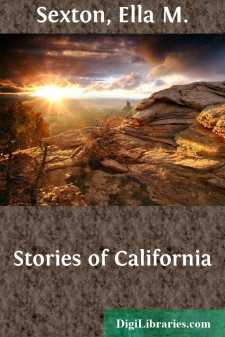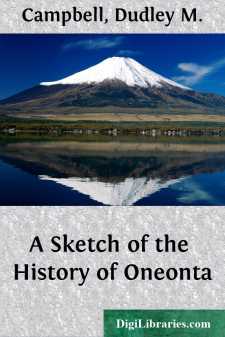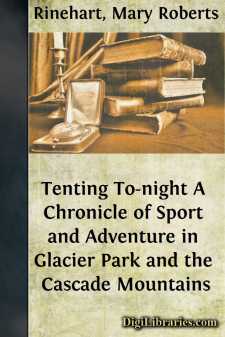History
- Africa 30
- Americas (North Central South West Indies) 50
- Ancient 68
- Asia 58
- Australia & New Zealand 8
- Canada 41
- Caribbean & West Indies 1
- Civilization 20
- Eastern Europe 12
- Europe 310
- Expeditions & Discoveries 60
- General 77
- Historical Geography 1
- Jewish 9
- Latin America 3
- Medieval 8
- Middle East 13
- Military 248
- Revolutionary 8
- Study & Teaching 5
- United States
- Western Europe 56
- World 13
United States Books
Sort by:
CHAPTER I PATRICK HENRY The Last French War had cost England so much that at its close she was heavily in debt. “As England must now send to America a standing army of at least ten thousand men to protect the colonies against the Indians and other enemies,” the King, George III, reasoned, “it is only fair that the colonists should pay a part of the cost of supporting it.” The English...
more...
by:
Edward Eggleston
A WHITE BOY AMONG THE INDIANS. Among the people that came to Virginia in 1609, two years after the colony was planted, was a boy named Henry Spelman. He was the son of a well-known man. He had been a bad and troublesome boy in England, and his family sent him to Virginia, thinking that he might be better in the new country. At least his friends thought he would not trouble them so much when he was so...
more...
by:
Ella M. Sexton
CALIFORNIA'S NAME AND EARLY HISTORY A Spanish story written four hundred years ago speaks of California as an island rich in pearls and gold. Only black women lived there, the story says, and they had golden spears, and collars and harness of gold for the wild beasts which they had tamed to ride upon. This island was said to be at a ten days' journey from Mexico, and was supposed to lie...
more...
by:
John Hossack
SPEECH OF JOHN HOSSACK. [At the February term of the U.S. District Court for the Northern District of Illinois, JOHN HOSSACK and JOSEPH STOUT, of Ottawa, were convicted of having aided in rescuing a fugitive slave from the custody of the U.S. Deputy Marshal at Ottawa, Oct. 20, 1859, and sentenced by Judge Drummond to pay a fine of one hundred dollars, and be imprisoned ten days. Mr. HOSSACK is a...
more...
NONOWIT'S HOME Long before New Hampshire found its name, the deep river at its southeast was known as the Piscataqua by the Indians who could stem its strong currents, even in bark canoes. Perhaps it was because of the fresh spring close to its salty shores, some three miles from the sea, that the red men made their encampment on the spot that was later equally attractive to men of white skins....
more...
CHAPTER I. The territory comprised within the present boundaries of the town of Oneonta, previous to the war of the Revolution, was little known except as the scene of many a sanguinary conflict between different Indian tribes which contended with each other for its possession. The Delawares, whose home was on the river bearing their name, had been in peaceful possession of the upper Susquehanna valley...
more...
CHAPTER I. A ROUGH START IN LIFE. To attempt to write and publish sketches of my somewhat eventful career is an act that, I fear, entails the risk of making enemies of some with whom I have come in contact. But I have arrived at that time of life when, while respecting, as I do, public opinion, I have hardened somewhat into indifference of censure. I will, however, endeavour to write as far as lies in...
more...
CHAPTER I. In perusing the following pages, the reader will learn the history of a class of men, who, for talent, cannot be excelled. He may startle at the horrid features which naked truth will depict—at deeds of darkness which, though presented to an enlightened people, may require a stretch of credulity to believe were ever perpetrated in the glorious nineteenth century. It will, no doubt, elicit...
more...
CHAPTER I. One evening long ago, when this wonderful century, now in a vigorous old age, had just passed its nineteenth birthday, in a bright, cheerful sitting-room in the good old city of Hartford, Conn., sat a fair young matron beside a cradle in which lay sleeping a beautiful boy a year and a half old. The gentle motion of her little slippered foot on the rocker, keeping time with the soft humming...
more...
THE TRAIL The trail is narrow—often but the width of the pony's feet, a tiny path that leads on and on. It is always ahead, sometimes bold and wide, as when it leads the way through the forest; often narrow, as when it hugs the sides of the precipice; sometimes even hiding for a time in river bottom or swamp, or covered by the débris of last winter's avalanche. Sometimes it picks its...
more...











